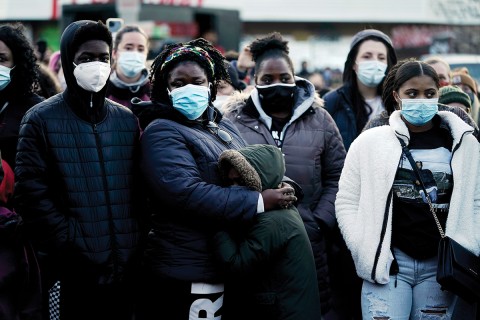What kind of justice did Derek Chauvin’s trial achieve?
The verdict of a court is not the final verdict of a society.

When a Minnesota jury handed down guilty verdicts on all charges against Derek Chauvin on April 20, the primary legal battle over George Floyd’s death was brought to a clear and fitting conclusion. But ever since the shocking video of that killing became public last May, its meaning and the requirements of justice in responding to it have been the subject of controversy and clashing interpretation that no jury could conclude. “I would not call today’s verdict justice,” Minnesota attorney general Keith Ellison said after the verdict, because justice “implies restoration.” But, he continued, the verdict did produce “accountability, which is the first step towards justice.”
In what sense, if any, was justice done in this case? And what steps toward justice lie ahead?
Some elected leaders looked for catharsis in the result, sometimes to the point of becoming obtuse and macabre. “George Floyd came to Minneapolis to better his life,” said Minneapolis mayor Jacob Frey, “but ultimately his life will have bettered our city.” At least Frey did not go as far as House Speaker Nancy Pelosi, who literally thanked the late Floyd “for sacrificing [his] life for justice.”




